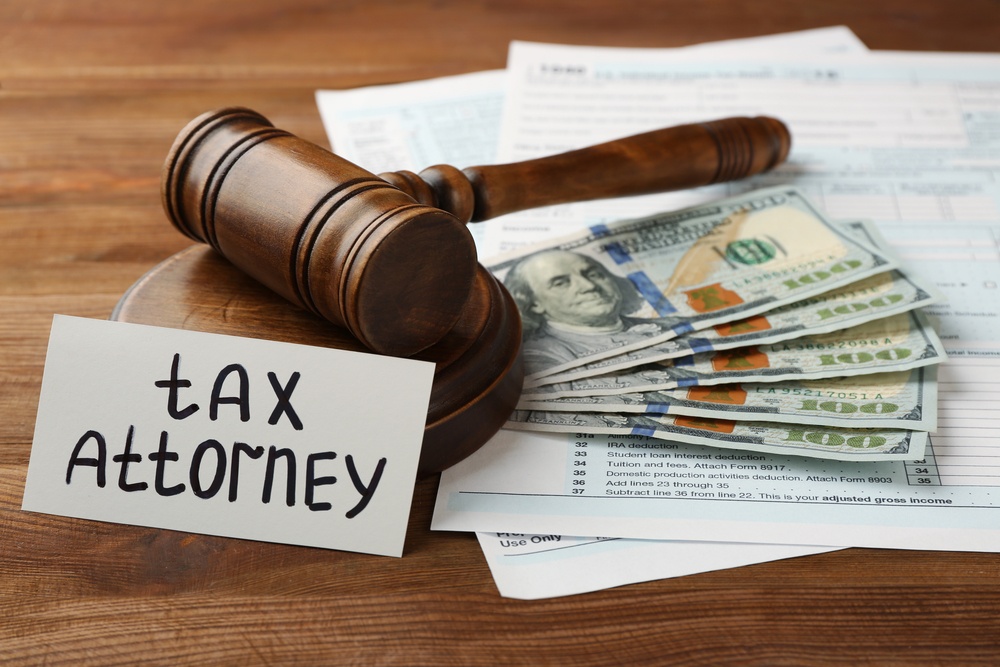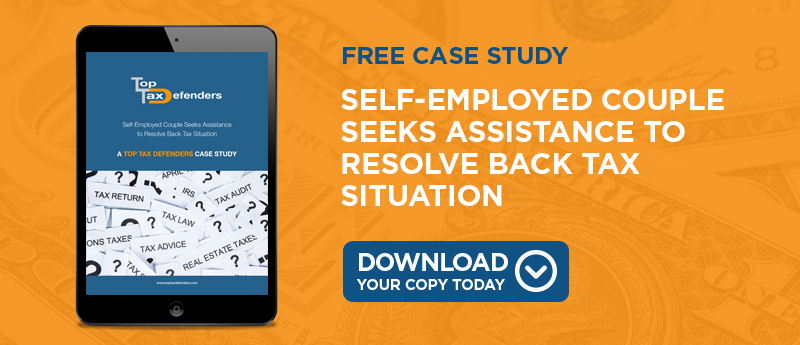
Resolving a complicated tax matter can take skills and knowledge you do not possess. Instead of dealing with the IRS by yourself, you could get the matter handled quickly and to your satisfaction by retaining a tax lawyer. You can retain a good tax lawyer by realizing the benefits of his or her services and knowing what questions to ask before you hire one to represent you. 
The Benefits of Hiring a Tax Lawyer
The IRS is the most powerful debt collector in the country. It has virtually unlimited means to collect on debts that taxpayers owe to them.
Given the amount of power the IRS can wield over your personal and financial life, it makes sense that you might feel intimidated or overwhelmed at the thought of dealing with your tax matter alone. When you retain a tax lawyer, however, you get access to legal resources that can help you resolve the issue fast and without sacrificing much, if any, of your money or assets.
To start, a tax lawyer is trained to know the current tax code and how it pertains to your particular matter. He or she will recognize what tax codes are at play with your tax situation and how to best go about resolving your case with the IRS.
A tax lawyer also has the legal authority to protect you from any real or perceived intimidation or abuse. While most IRS agents are courteous and respectful toward clients, you still may encounter one who has a less than friendly demeanor. Your lawyer will make sure you are treated with due respect during the case.
Likewise, your tax lawyer will likewise act as your intermediary with the IRS. He or she can handle phone calls, letters, and other forms of communications. You can hand off the complex task of figuring out your case to your lawyer who will in turn make sure the IRS gets all of the documentation and proof it needs to resolve your situation.
Finally, a good tax lawyer will work diligently to protect your finances and assets from seizure or liens. With your attorney's help, you may avoid having your wages garnished, your bank accounts levied, and other assets seized from you in order to resolve your debt. Instead, your lawyer may arrange other means to satisfactorily settle the account including:
- Setting up an installment agreement
- Making an Offer in Compromise or OIC
- Asking the IRS to put your account in Currently Not Collectible or CNC status
- Using your debit or credit card to pay off the debt
- Sending in a money order or personal check for the debt's amount
- Having your account set up on automatic ACH withdrawals until the debt is paid in full
Before you retain a tax lawyer, however, you might wonder what questions you should ask during the vetting process. The questions you ask can reveal an attorney's readiness to assist you and finesse in dealing with the IRS.
Questions to Ask Your Tax Attorney
As a prospective client, you are expected to do your research before hiring a tax attorney to represent you. Some of the questions you might consider asking include:
What types of tax law do you specialize in?
You want to hire a tax attorney who specializes in the area of tax law that pertains to your situation. For example, if you owe back payroll taxes, you want to retain a tax lawyer who is experienced in business tax law. He or she will be able to help you file your back taxes and figure out a way to pay off your payroll tax debt quickly.
How long have you been in practice?
If your tax situation is rather complicated, you may not want a tax lawyer who is newly graduated from law school representing you. You instead may prefer a skilled lawyer that has been in practice for several years or perhaps even a decade or longer working your case. The experience can translate into confident and assertive representation when dealing with the IRS.
Are you admitted to the state bar?
This question can be particularly important if your tax situation carries over to owing the state back taxes as well. You want a lawyer who is admitted to the bar in which you live or work. Depending on your particular tax situation, you may even want a lawyer who is admitted to the bars of neighboring states representing you before the IRS.
Can you help me with my tax case?
All of the best qualifications will not matter if the tax lawyer you are interviewing cannot actually help you with your particular case. You want to know that your prospective tax attorney can handle the type of case you are dealing with whether it involves complicated business interests, real estate ownership issues, an IRS audit, or any other tax matter. You should make sure your lawyer understands the case you are dealing with and can handle it competently before retaining his or her services.
How do you charge or bill for services?
Understanding how the lawyer charges for services is critical in helping you determine if you can actually afford to retain him or her. You should ask if the lawyer charges for:
- Flat fees
- Hourly fees
- Retainer costs
- Incidentals like copying or postage
- Administrative support costs
Knowing how and for what you will be charged can help you budget accordingly and find a lawyer whose services fall within what you can afford to pay right now.
How will you keep me informed about my case?
This question can be particularly important if you expect to be updated frequently about the status of your case. You need to find out if the lawyer will call or email you or if you will be expected to make inquiries yourself. You also may want to learn to whom you will actually speak, whether it be an administrative assistant, paralegal, or someone else rather than the attorney, when you call to find out about your tax case.
The questions you ask during the vetting process can help you find a tax lawyer who is more than ready and capable of handling your particular tax case. Hiring the services of a skilled tax attorney can help you resolve your tax situation quickly and help you protect your money and assets from garnishment, liens, or seizure.



